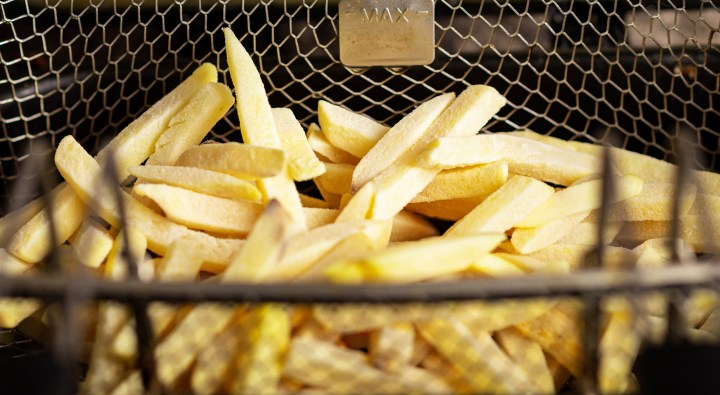TRADE TARIFFS
European nations ‘dumping’ frozen potato chips on SA market, domestic producers complain

European countries with a glut of potato crops have been accused of ‘dumping’ supplies of frozen chips in South Africa, in effect undercutting local producers. However, temporary anti-dumping duties levied against Belgium (23.06%), the Netherlands (104.52%) and Germany (181.05%) have run their course without any word from government on whether they will be renewed or brought into permanent effect.
If a company exports a product at a price lower than the price it normally charges on its own home market, it is said to be “dumping” the product.
South Africa is not alone – many governments around the world take action against dumping in order to defend their domestic industries.
The World Trade Organization allows governments to act against dumping where there is genuine (“material”) injury to the competing domestic industry.
In order to do that, the government has to be able to show that dumping is taking place, calculate the extent of dumping (how much lower the export price is compared to the exporter’s home market price), and show that the dumping is causing injury, or threatening to do so.
The International Trade Administration Commission of South Africa (Itac) had until Saturday, 14 January, to update the French fry tariff, but instead allowed it to expire – which local importers believe means that they can now claim refunds for any duties paid since mid-January.
Frozen food importer Hume International says the import duties could see affected European French fry producers seek out alternative markets with lower tariff rates, leaving South Africa “high and dry, and further aggravating local price hikes and shortages”.
The 181% tariff increase on German producers meant, for example, that a 2.5kg pack of frozen French fries that used to cost R45 has rocketed to as much as R130.
Visit Daily Maverick’s home page for more news, analysis and investigations
Fred Hume, managing director of Hume International, says the high tariffs imposed against Agrofrost from Germany, for example, have cut the German pipeline.
However, local consumers have not directly absorbed these costs.
The frozen chips supply in question is imported and then sold on to restaurants and hotels, rather than local supermarkets.
The three big local frozen chips suppliers are McCain, Nature’s Garden and Lamberts Bay Foods, owned by Famous Brands. The total market size is about 160,000 to 180,000 tonnes of frozen chips a year. However, consumers like you and me only account for about 10% of this market, while the rest goes to restaurants and food services companies such as caterers.
Hume admitted that none of the international frozen chips under contention is sold directly to the South African public.
Bruce Sanday, chief executive of Nature’s Garden, says the anti-dumping tariffs were first introduced as a temporary measure. And the government missed the boat on renewing the tariffs.
Thalukanyo Nangammbi, communications manager for Itac, confirmed that the anti-dumping duties were provisionally applied for six months, pending the finalisation of an investigation after allegations of injurious dumping.
“The duties lapsed as the investigation was still ongoing. It should be noted that the investigation may still be completed within the 18 months’ legislated period, and definitive anti-dumping duties may still be imposed, should the Minister [of Trade and Industry] decide to do so.
“The Commission is ensuring that all due processes are followed to ensure the completion of the investigation, and thereafter the Minister’s decision will follow,” he says.
Sanday argues that local producers have sufficient capacity to service the South African market.
“Shipping costs and the exchange rate means that we are competitively priced against imported products. The problem is that, in Europe, the volumes are much higher. One international plant could probably service the entire South African market with just half its production numbers,” he says.
Sanday says in years where European countries have bumper crops, excess product is sourced by manufacturers at no cost, and this enables them to export to other geographies (such as SA) at a lower than usual cost, in effect undercutting local producers in those areas.
“When there are no anti-dumping tariffs, importers sign a contractual supply agreement with other countries and then, instead of spikes with incoming products from other countries, we face a steady oversupply. That stops local investment in its tracks, which will bring local costs down,” he says.
However, Hume’s position is that competition is integral to an economy’s ongoing welfare, and the food industry benefits greatly from global trade which serves to fill shortages in the market and keep prices stable.
“The simple fact of the matter is that while the local industry produces sufficient amounts of potatoes to meet consumer demand, the same cannot be said for the specific variant used to make French fries, and hence our reliance on imports.” BM/DM



















Given the currently poor quality of local potatoes restaurants are glad to have the option of affordable imports.